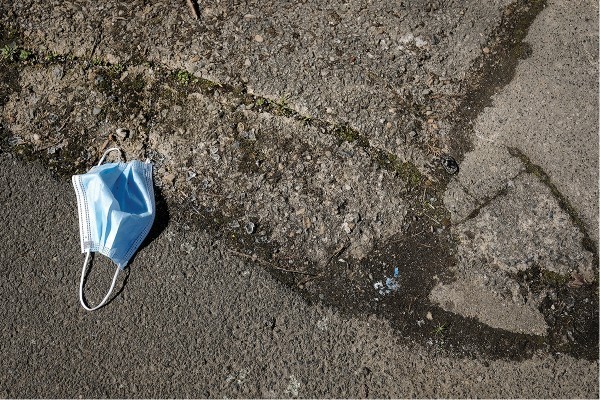Local body elections are not often known for being hotbeds of fake news and nastiness, but there are fears that the post-Covid world has changed this. Critic Te Ārohi spoke to Kayli Taylor, a former Otago student now working at the Disinformation Project, to try and cut through the mess.
The upcoming local body elections will be “the first defined by the infodemic”, said Kayli, and is likely to preview the sort of tactics that will be employed in next year’s general election. Many high-profile anti-vax groups are now gunning for positions on local councils and school boards, but quietly. A Stuff investigation found Voices for Freedom (VFF) members were being told to “sway the results, throw our weight around”, and make Aotearoa “ungovernable”. They were, however, explicitly told to “hide their affiliations” with the group, which is a bit of a red flag.
In Dunedin, Tracey and Watson Pita (former coordinators of VFF) are standing for Dunedin City and Otago Regional Council elections, respectively. Tracey told the Otago Daily Times that they have both since left VFF. While she claimed they were “open about their past affiliation with the group,” she refused any further comment. Other candidates known to have been associated with anti-vax sentiment include mayoral candidates Lee Vandervis and Pamela Taylor, and Dunedin City Council candidates Veronica Jackman and Malcolm Moncrief-Spittle (who is running as a Jedi).
Kayli said that a lack of transparency was a key concern going into this year’s elections: “Voters have a right to know what people are, what they would genuinely do.” Without this, “an information void” is created, said Kayli, where we “don’t necessarily know what they stand for. It’s a lot of work to go beyond reading their name and bio.” Turns out, the ‘ceebs’ attitude amongst students is a great way to accidentally undermine democracy.
This risk is intensified by local body elections’ low engagement; voter turnout at the last elections, in 2019, was just 42.2 - almost half that of the general election. This means even fringe candidates with tiny numbers of committed supporters could make the cut. For instance, it only took Dunedin City Councillor Mike Lord 2,604 votes to snag the last spot at the DCC’s table – in other words, less than 3% of eligible voters.
Stereotypically, fake news seems to be limited to boomers who TYPE IN ALL CAPS AND CLICK EVERY LINK THEY SEE ON THE FACETUBE. But while younger digital natives tend “to see themselves as tech- and media-literate,” our vibe checks can often be pretty lacking. For instance, most of us find it easy to “identify a good-looking media website” – but having a bigger budget or a slick webpage isn’t always a sign of accuracy or reliable fact-checking.
Kayli suggested that students pay more attention to who they’re voting for in upcoming elections. “Check out the framing, the language, that they use to emote particular viewpoints.” She had a few pro-tips to better vibe check the info we see and share. Her first piece of advice was simple: think about how it makes you feel. “If it makes you feel very angry, it may be intended to create a high emotional response, [which] generates virality.” As an example, she pointed to a viral story from January, about five kids collapsing at a vaccination centre in the North Shore. That story has since been repeatedly debunked. However, “while it may not be true,” said Kayli, “[it] creates a high emotional response. When you see that, you go: ‘Holy shit, that’s terrifying’.” This makes you more likely to share it, even if your gut feeling says it probably isn’t true.
Next up is to think of the poster’s agenda, said Kayli: “Why is someone sharing this information, and what could they have to gain from it?”. Disinformation is created and shared for a reason – whether to make money off virality, or to push a political angle. For instance: instilling fear and mistrust in the Covid vaccine, or in Aotearoa’s Government.
She said that “as a citizen and a voter, it’s our responsibility to check it out.” Activists like Dudley Benson, media outlets like Stuff and non-profits like The Disinformation Project, and Fight Against Conspiracy Theories (FACT) Aotearoa have been doing the mahi to highlight conspiracist candidates up and down the motu. In many cases, it’s as simple as finding them on Google and Facebook to do a quick vibe check. If you can get past the ‘ceebs’ of voting, the least you can do is make sure you know who the crazies are.
(The Disinformation Project is an independent research group who work together to study misinformation and disinformation in Aotearoa, and the impact it’s having on people’s lives. Kayli began working for them last year, after finishing her Masters in Peace and Conflict Studies.)






